Do you need classic car insurance if you only drive your car occasionally? Yes, you do. Even limited use of your classic vehicle warrants specialized coverage to protect its value and uniqueness. In this article, we’ll explain why occasional driving still requires classic car insurance and outline the key benefits of having the right policy.
Key Takeaways
- Classic car insurance is essential even for occasional drivers, offering tailored coverage that protects the vehicle’s value and ensures proper care.
- Agreed-value coverage in classic car insurance guarantees a predetermined payout in case of total loss, safeguarding the car’s full market value.
- Proper storage is crucial for classic car insurance, often leading to lower premiums and providing essential protection against theft and damage.
Why Occasional Driving Still Requires Classic Car Insurance
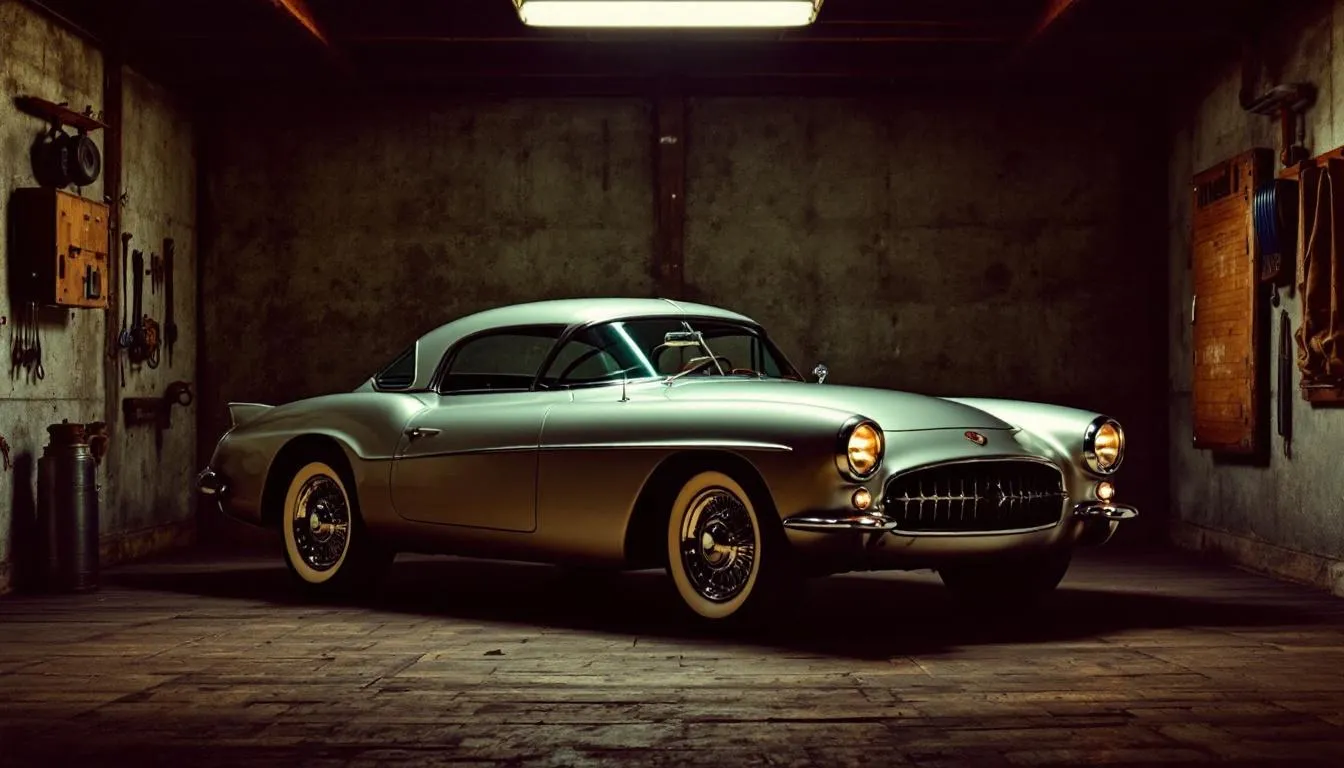
You might think that if you only drive your classic car on rare occasions, you can get by with standard auto insurance or even skip insurance altogether. However, this approach can leave you and your prized vehicle vulnerable. Classic car insurance is tailored specifically for vehicles that are not used for daily commuting but still require protection due to their value and rarity.
Even for occasional use, classic car insurance policies offer coverage that standard auto insurance cannot match. These policies are designed to protect the value of collectible cars, acknowledging their limited usage and special maintenance needs. They ensure that your investment remains safeguarded, no matter how infrequently you take your car out for a spin, especially under a classic car policy.
Moreover, classic car insurance often mandates specific storage conditions, such as secure, enclosed garage storage in a private garage to protect the vehicle from theft and damage. This requirement not only helps maintain the car’s condition but also influences the insurance premium, making it a crucial aspect of your overall coverage.
How Classic Car Insurance Protects Your Investment
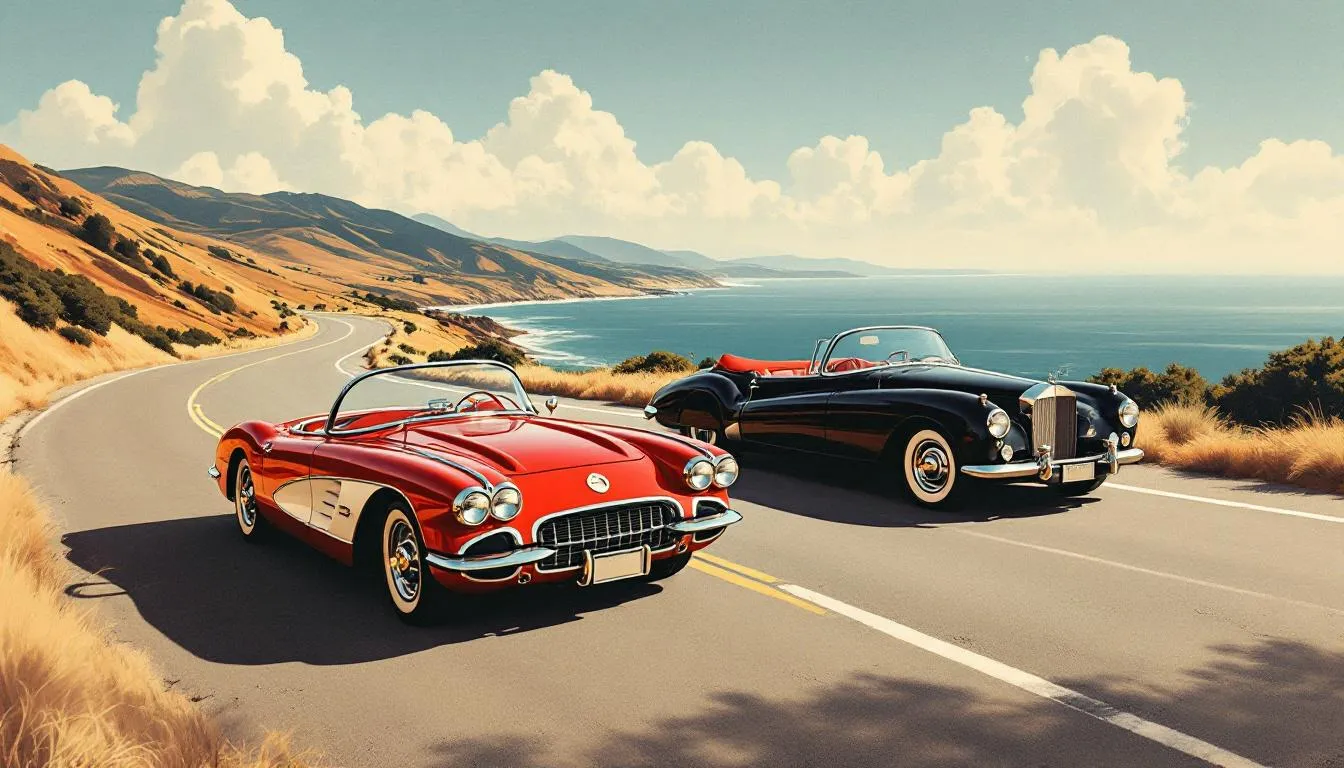
One of the standout features of classic car insurance is the agreed-value coverage. Unlike standard auto insurance, which typically pays out the actual cash value of a vehicle (often less than its market value), agreed-value coverage ensures that you receive a predetermined amount in the event of a total loss, providing you with full value. This means you won’t face unexpected financial shortfalls if your car is damaged beyond repair, as long as the insurer agree to the agreed upon value.
In addition to agreed-value coverage, classic car insurance policies often include specialized repair coverage. This ensures that any repairs are done using original parts and by mechanics familiar with vintage vehicles, helping maintain your car’s authenticity and value. Such attention to detail is crucial for preserving the car’s worth over time.
Together, these specialized protections and coverages work to safeguard the investment of classic car owners. By choosing the right insurance coverage, you can ensure that your beloved vehicle retains its value and remains a cherished part of your collection for years to come.
Understanding Usage Restrictions in Classic Car Policies
Classic car insurance policies come with specific usage restrictions designed to reflect the limited use of these vehicles, including daily driving and regular driving. Typically, these policies impose mileage restrictions, often capping annual driving at around 5,000 miles, though some may allow more. These limits help keep premiums lower while ensuring that the vehicle remains in pristine condition.
In addition to mileage restrictions, classic car policies often limit usage to specific events or occasions, such as car shows or parades. These restrictions are crucial for classic car owners to understand, as they can significantly impact the overall cost and terms of the insurance policy. By adhering to these guidelines, you can benefit from lower premiums and more favorable insurance terms.
Comprehensive Coverage for Infrequent Use
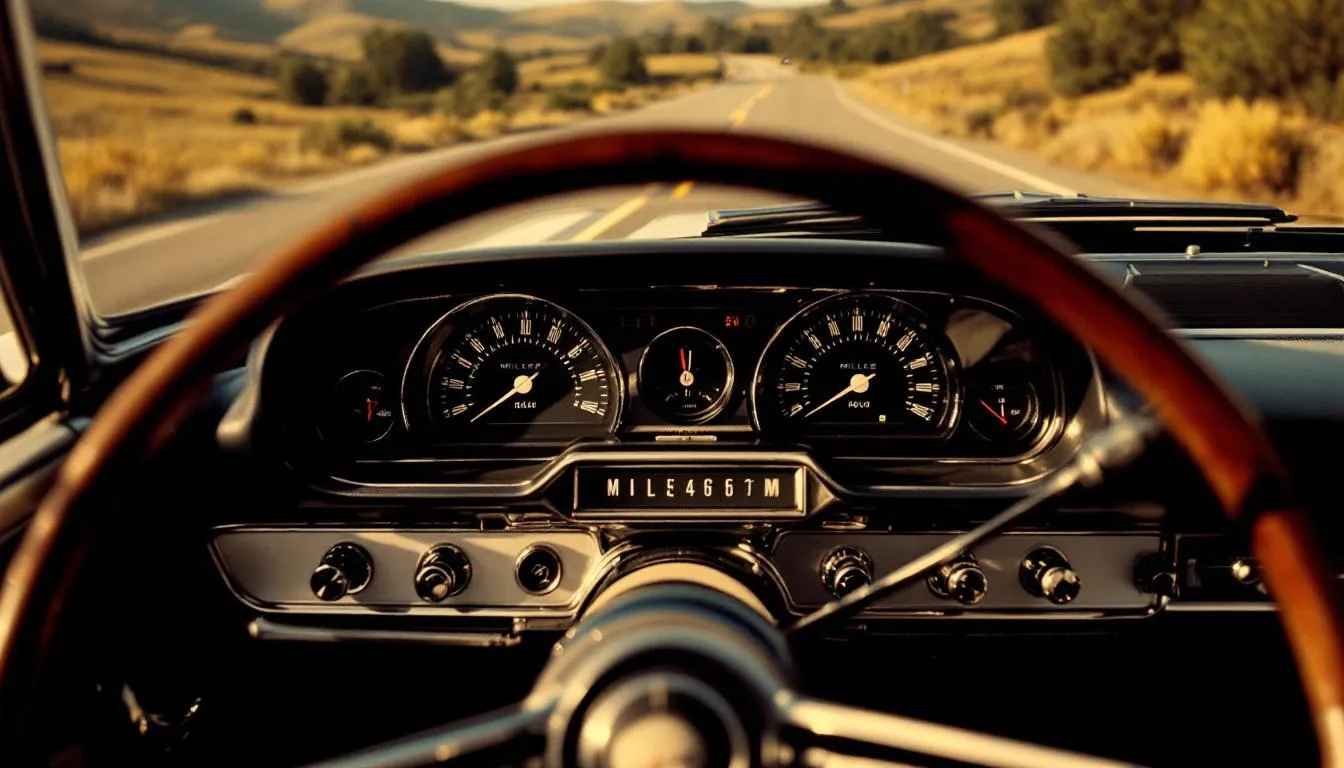
Comprehensive coverage is a cornerstone of classic car insurance, offering standard coverage based against various risks that could cause property damage to your vehicle. This includes the right coverage for theft, vandalism, and natural disasters, ensuring that your investment is safeguarded against unforeseen events.
Classic car insurance often includes event and transportation coverage, protecting your car’s during car shows, public displays, and while being transported to these events. Additionally, roadside assistance can be a valuable feature for classic car owners looking to insure their new car.
Such comprehensive coverage provides peace of mind for classic car owners, knowing that their prized collector’s item is well-protected, even when not in regular use, ensuring they have the best coverage, even if it is considered classic in poor condition, with adequate coverage for all scenarios.
Liability Insurance for Classic Cars
Liability insurance is a critical component of any classic car insurance policy. It protects against financial loss due to damages or injuries inflicted on others if you’re at fault in an accident. This coverage is essential because classic car owners could face substantial out-of-pocket expenses without it.
Unlike standard auto insurance, which may not adequately cover the unique risks associated with classic cars, specialized liability coverage ensures that you are protected in the event of an accident. Given the appreciating value of classic cars, having adequate liability insurance is crucial to avoid potential financial ruin.
Specialized Coverages for Classic Car Owners
Classic car insurance policies often include specialized coverages that cater to the unique needs of vintage vehicle owners. One such coverage is spare parts coverage, which protects against the loss of rare components essential for maintaining your vehicle. This can be a lifesaver if you need to replace a hard-to-find part.
Restoration coverage is another valuable feature, allowing access to mechanics who can perform repairs at a repair shop using original parts. This ensures that any restoration work maintains the vehicle’s authenticity and value. Additionally, memorabilia coverage can protect items like vintage license plates and other collectible accessories associated with your classic car.
Inflation protection may also be included in some classic car insurance policies at no extra cost. This safeguard ensures that your vehicle’s value keeps pace with market changes, providing peace of mind that your investment remains protected over time.
Lower Premiums Compared to Standard Auto Insurance
One of the appealing aspects of classic car insurance is its cost-effectiveness. Due to the limited usage and specialized care these vehicles require, classic car insurance policies often come with lower premiums compared to standard auto insurance. This makes it an attractive option for classic car owners who don’t drive their vehicles frequently.
Furthermore, the reduced risk of accidents associated with infrequent use allows insurance companies to offer better coverage at a lower risk and lower price. Classic car insurance thus provides a cost-efficient way to protect your valuable vehicle and reduce costs without breaking the bank.
Storage Requirements and Their Impact on Premiums
Proper storage is a critical factor in classic car insurance coverage and premiums. Insurance providers often require that classic cars be stored in a covered, locked garage or storage facility to qualify for coverage. This helps protect the vehicle from theft and damage, maintaining its condition.
Secure storage can also lead to discounts on insurance premiums. By reducing the risks associated with theft and weather damage, proper storage conditions can help lower the overall cost of your classic car insurance.
Factors Affecting Classic Car Insurance Premiums
Several factors influence the premium amounts for classic car insurance. The agreed value of the car’s worth is a significant determinant, as it sets the payout amount in case of a total loss. Additionally, the condition of the vehicle, particularly for cars made before 1979, can impact premiums if they are well-maintained.
Driver history is another crucial factor. A clean driving record can lead to lower premiums, while a history of accidents or serious infractions can increase costs. A good driving record, along with other factors such as age and credit history, also plays a role in determining insurance premiums.
Storage conditions and annual mileage further influence premiums. Secure, enclosed storage minimizes risks, potentially lowering insurance costs. Similarly, limited annual mileage reflects reduced usage, which can also lead to lower premiums.
Tips for Reducing Classic Car Insurance Costs
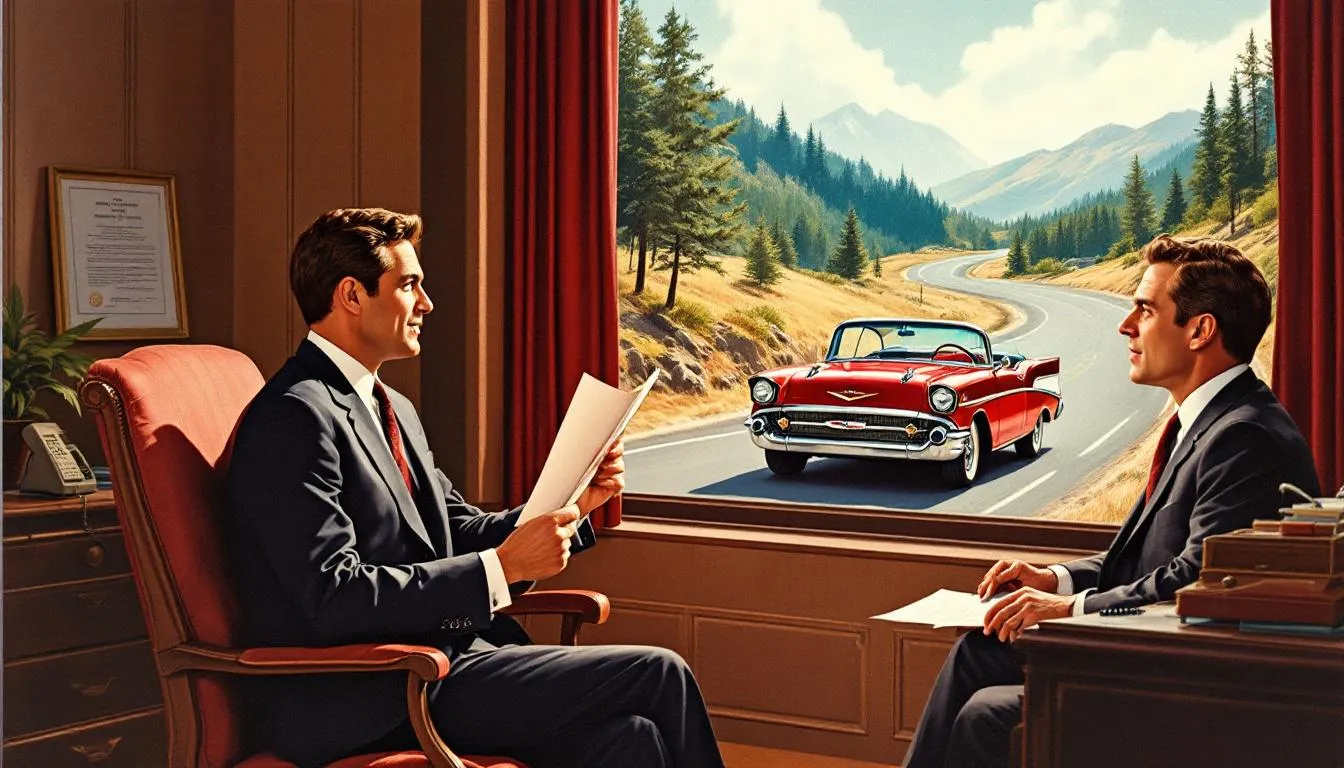
Reducing classic car insurance costs is possible with a few strategic steps. Negotiating the insured value of your classic car can directly influence the premium you pay. Additionally, driving the car only occasionally can qualify you for a low mileage discount, further reducing costs.
Investing in proper storage is another effective way to save on insurance premiums. Storing your classic car in a secure garage lowers the risk of theft and damage, leading to long-term savings on insurance costs.
Choosing the Right Insurance Provider
Selecting the right insurance provider ensures your classic car is adequately protected. Verify the financial health of the insurance company using resources like AM Best to confirm they have a solid track record for settling claims.
Customer feedback on platforms such as Trustpilot and ConsumerAffairs can provide insights into the quality of the claims process and customer service. Providers that specialize in classic car insurance often have staff familiar with the unique requirements of classic vehicles, ensuring that you receive tailored coverage.
Comparing Classic Car Insurance Providers
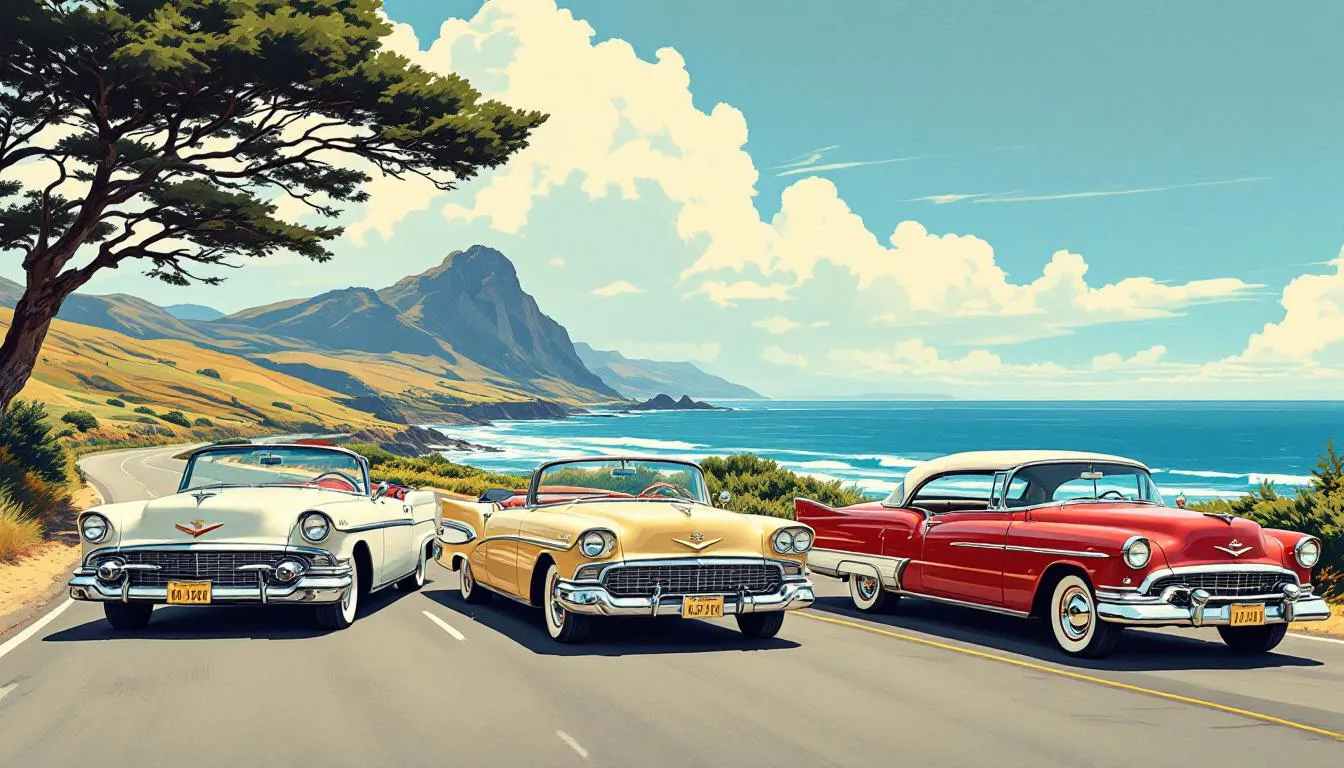
When comparing classic car insurance providers, consider both the coverage options and customer experiences. Notable classic car insurance companies include:
- State Farm
- Safeco
- American Collectors Insurance
- American Modern
- Hagerty
Customer testimonials often highlight seamless claims processes and excellent customer service, making these providers popular choices.
Some providers offer additional benefits, such as Safeco’s diminishing deductible option and Hagerty’s coverage for vehicles undergoing restoration. When selecting a policy, consider these added coverages to ensure you get the best protection for your classic car.
Real-Life Experiences from Classic Car Owners
Real-life experiences from classic car owners can provide valuable insights into the effectiveness of different insurance policies. Many owners highlight substantial cost savings compared to their previous policies while maintaining equivalent coverage. These testimonials underscore the value of specialized classic car insurance in providing affordable protection.
However, some owners have faced challenges, such as difficulties in obtaining desired coverage amounts. Despite this, service staff were often described as courteous and helpful, showcasing the overall positive experiences with specialized providers.
Summary
In summary, classic car insurance is an essential investment for protecting your vintage vehicle, even if you only drive it occasionally. From agreed-value coverage to specialized repair options, these policies offer comprehensive protections that standard auto insurance cannot match. Proper storage and understanding usage restrictions can further optimize your coverage.
By choosing the right insurance provider and considering factors like vehicle condition and driving history, you can secure the best protection for your classic car. Don’t leave your prized possession vulnerable—invest in classic car insurance to ensure it remains a cherished part of your collection for years to come.
Frequently Asked Questions
Why do I need classic car insurance if I only drive my car occasionally?
Classic car insurance is essential even for occasional drivers, as it offers specialized protections for your vintage vehicle and safeguards your investment over time.
What is agreed-value coverage?
Agreed-value coverage guarantees a specific payout in case of a total loss, without factoring in depreciation, ensuring fair compensation for your classic car. This type of coverage is particularly valuable for high-value vehicles.
How can I reduce my classic car insurance costs?
To reduce your classic car insurance costs, negotiate the insured value, drive the car infrequently to qualify for low mileage discounts, and ensure proper storage to minimize theft risk. These steps can lead to significant savings.
What are the storage requirements for classic car insurance?
Classic car insurance generally requires that vehicles be stored in a secure, covered garage or storage facility to minimize risks of theft and damage, which can affect your premium.
What factors affect the premium for classic car insurance?
The premium for classic car insurance is influenced by factors such as the agreed value of the car, its condition, the driver’s history, storage conditions, and annual mileage. These elements collectively determine the overall cost of your insurance.
